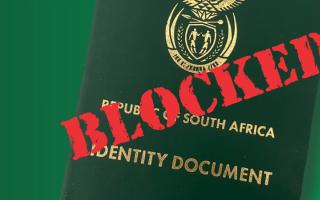
Impact Litigation Unit
Our Impact Litigation Unit takes Home Affairs to court.
A case regarding their conduct of unlawfully blocking identity documents of our Members.
LegalWise South Africa welcomes the judgment handed down on 16 January 2024 by the Gauteng High Court in Pretoria, whereby it declared that the Department of Home Affairs' conduct of placing markers on identity numbers and identity documents causing them to be “blocked” is unjust, inconsistent with the Constitution and invalid.
On 20 September 2023, LegalWise South Africa (Third Applicant), alongside Ms Mazibuko (First Applicant) and Lawyers for Human Rights (Second Applicant), took the Department of Home Affairs to court regarding their conduct of unlawfully blocking identity documents of its Members, who formed part of 800 000 South Africans whose identity documents were blocked by the Department. About 500 000 of those South Africans have their IDs blocked because of duplication.
This means one (1) person is allocated two (2) ID numbers or two (2) people or more people are allocated one (1) identity number. The Children's Institute at the University of Cape Town were the amicus curiae (friend of the court) in the matter – alerting the court to the equally important plight of children and its consequences, because their parents could not register their births because their ID's were blocked and children could not access their citizenship rights, as South Africans. LegalWise was represented by De Saude Darbardi Attorneys (Cape Town) and Advocate David Simonz in the matter.
This case originates from an application we submitted on behalf of our Members, who have been grappling with the distressing issue of blocked identity documents, where they were receiving no assistance from the Department of Home Affairs, despite cooperating with the Department, and submitting the necessary documents. Some of our fellow citizens have endured this burden for an extended period, ranging from 3 to 10 years. We firmly believe that this situation is neither just nor reasonable and contravenes Section 33 of the Constitution, as well as sections in the Promotion of Administrative Justice Act.
Blocked identity documents have profound implications for individuals' lives, rendering them unable to assert their identity and access their fundamental rights as citizens. These documents are indispensable for various essential activities, including marriage, banking, healthcare access, employment, and even the exercise of voting rights. Such violations of the right to identification have far-reaching consequences for other constitutional rights, including equality, human dignity, citizenship, and freedom of movement.
The Court declared that the conduct, by the Department, of placing markers on identity numbers and identity documents, causing them to be blocked, (a) in the absence of fair administrative process prior to placing such a marker against the affected identity numbers; (b) before any final decision is taken relating to the affected individual's status as a South African citizen or permanent resident and; (c) in the absence of any empowering legislation being in place to allow the Department to do this, constitutes unjust and irregular administrative action that is inconsistent with the Constitution and is therefore invalid.
It is also important to note that the Department was acting outside of the scope of its own powers because there were no laws allowing it or empowering it to block or unblock ID numbers. And our Constitutionally mandated Administrative Law dictates that a government department must be empowered by enacted legislation to carry out the powers that it has. All its actions must be rooted in Law / Legislation.
Also, the court echoed the fact that blocking an ID is such a final act/decision, that it is unlawful for the department to get to such a decision without alerting the person and allowing them to make representations to fix the issue before the ID is blocked. Even in the case of fraud, a criminal court would have to make a finding of fraud and a person would have to be found guilty of the crime before the Department can say they got the ID fraudulently. So blocking an ID prematurely – on the suspicion only was detrimental to the ID holder. We have laws and processes for a reason.
The Court provided quite a comprehensive judgment and court order. Right now, LegalWise is compiling a list of its Members whose IDs are blocked to hand into the court as per the court order to be investigated by the Department of Home Affairs. The matter is under case management of a Judge, to make sure that this issue is dealt with adequately, which is not a usual court order. In this case since it has been an issue for years, and the consequences are so dire – the court has asserted itself to make sure that it reaches an adequate resolution to prevent this from happening any further and to mitigate any further unnecessary dire consequences.
The case is under case management until March 2025 – hopefully by then this issue will be resolved.
With this said we are a step closer to resolving this issue. This case takes a major step in acknowledging the problem that was hiding in plain sight.
Did you know…At least 800 000 South African identity documents were blocked by the Department of Home Affairs.